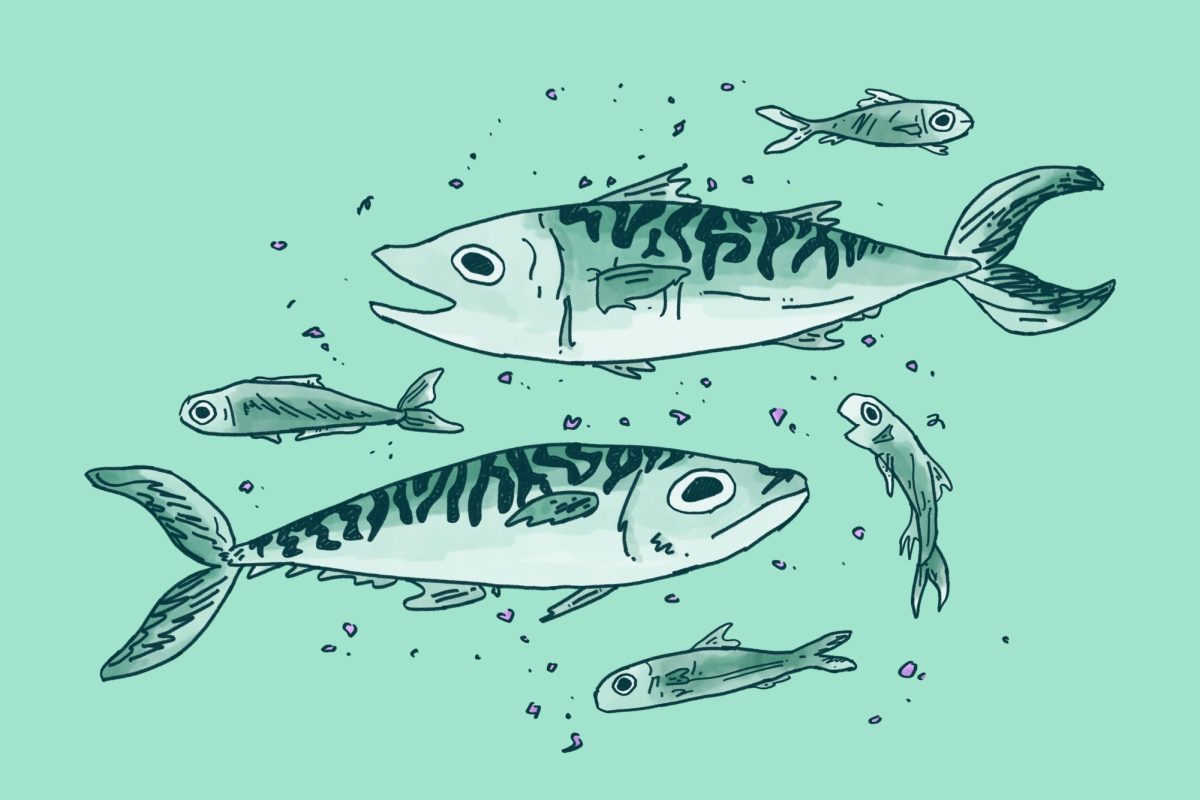I pick up my glass of water, staring down at the beige pill sitting in my palm. It looks like grains of sand wrapped in plastic, like something inedible, but that doesn’t matter. I sip some water and swallow the pill, trying my best to get rid of the off-putting taste it leaves behind as fast as I can. For over half of Americans, this experience is an everyday practice: taking nutritional supplements. But after the plasticky taste lingered in my tongue, it wasn’t long before the question arose: Why do we even need to take these supplements? Is the food we eat not enough?
The notion of essential nutrients first emerged during the 18th and 19th centuries, when scientists discovered that our bodies required not only minerals but also 13 organic molecules, or “vitamins,” in order for proper development. These included the vitamins A, B1, B2, B3, B5, B6, B7, B9, B12, C, D, E, and K, as well as minerals including but not limited to calcium, magnesium, sodium, iron, and zinc. A deficiency of enough minerals or any of these vitamins would result in various diseases, the most famous of which being scurvy. Scurvy, caused by a lack of vitamin C, includes bleeding gums, joint swelling, fever, chills, yellow whites of the eyes, or yellow skin. Sailors were most commonly afflicted by scurvy due to not having enough fruits and vegetables on board their ships.
However, the need for essential nutrients is shared by multiple species, not just humans. So then how come animals are well off with such simplified and repetitive diets? This is due to many animals’ ability to create certain vitamins inside their own bodies. For example, Vitamin C can be produced by most mammals, birds, reptiles, and fish. We, however, no longer have this ability to create any vitamins ourselves.
In the past, humans didn’t suffer from being unable to create vitamins; instead, humans scavenged for food to satisfy their nutritional needs. However, humans shifted to farming as a means for obtaining food after the agricultural revolution. As a result, our diets narrowed down into certain staples that didn’t contain all of the vitamins needed. Humans were able to produce and eat more food at the cost of reduced protection from vitamin deficiencies.
By the mid-20th century, vitamins had emerged out of labs and onto kitchen counters, in the form of the familiar pill bottles we know today. The change was driven by growing awareness that many people were not getting enough vitamins from their diets. Modern industrial processing had stripped natural vitamins and minerals from staple foods such as flour, further trading off nutrition for convenience and productivity. To address this problem, food enrichment and fortification were introduced, processes in which nutrients and minerals were added back into foods after they were processed—a practice that continues today.
Other than my personal qualms with the unpalatable aftertaste of vitamin and mineral supplements, a main issue many have with these dietary supplements is that due to Food and Drug Administration (FDA) regulatory laws, they are unable to be properly reviewed for effectiveness and safety before they are on the market. Instead, the FDA can only find the supplements to be unsafe or incorrectly labeled after the product is already being sold. Supplements are treated more like food than drugs, resulting in the supplement industry going straight to the consumers who have to decide on their own whether they trust a certain supplement or not. This allows companies to freely use certain terms and marketing rhetoric to exaggerate their products’ benefits; these exaggerations are designed to make money rather than help their customers. Additionally, even clinically trusted supplements make it very easy for people to accidentally consume an excessive amount of a nutrient. Since supplements are taken individually, separate from an entire meal, we can lack the context to understand how these nutrients react in our bodies as a whole, resulting in imbalances.
However, supplements do remain incredibly vital in our society, especially for certain medical conditions and during pregnancies, which often require a sudden change in necessary nutrients. Many doctors recommend that people try to get most of their essential nutrients in their food but recognize the different circumstances that lead people to use supplements as well. On the whole, dietary supplements are just singular products of a recurring theme in our society. If we broaden our scope, we can observe how we are often swallowed by further advancements and norms. The habit of taking nutritional supplements has become a norm, which isn’t necessarily a bad thing, nor is valuing convenience. The concern is that we risk losing the habit of questioning and reflecting on these norms. Supplements should not be seen as a replacement for natural nutrients. While we may not always get all the nutrients we need from food alone, making such dietary enhancements necessary, we should continue to learn about and be mindful of what we put into our bodies. It’s important to remember that almost as soon as dietary supplements were created, they became profit-driven and barely regulated, and that the information we receive about them is often influenced by who stands to gain from it. Nutrition can reach us through fortified foods, supplements, or a varied diet, but it’s up to us to make the balance.























































































